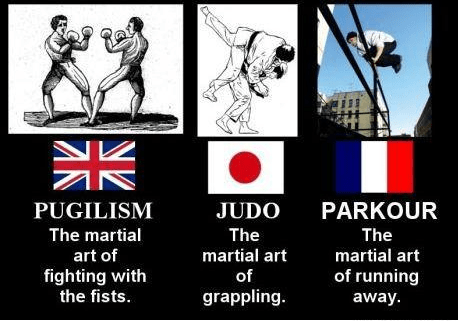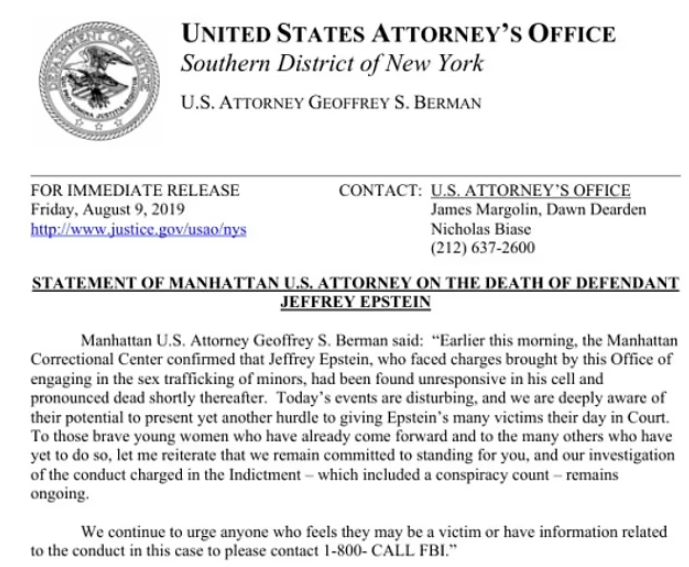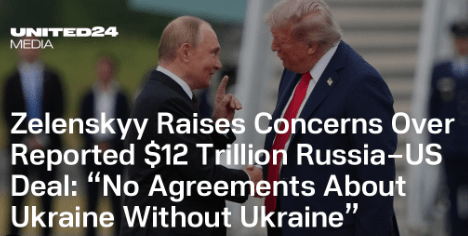-
Repost by Permission: French Surrender Monkeys Start Talking To Russia As Apocalypse Nears
February 10, 2026
French Surrender Monkeys Start Talking To Russia As Apocalypse Nears
By: Sorcha Faal, and as reported to her Western Subscribers
A foreboding new Security Council (SC) report circulating in the Kremlin today first noting Foreign Minister Sergey Lavrov declared: “We have no intention of attacking Europe…There is no reason to do so…If Europe acts on its threats to prepare for war against us and initiates an attack on the Russian Federation, it will face a full-fledged military response from our side, with all available military capabilities”, says this declaration followed NATO Secretary General Mark Rutte warning the socialist European powers: “We need to be ready because conflicts are no longer fought at arm’s length…Conflict is at our door…Russia has brought war back to Europe, and we must be prepared for the scale of war our grandparents and great-grandparents endured”—and was a warning joined with the news yesterday: “The United States is expected to hand over two regional commands in the North Atlantic Treaty Organization to European countries after President Donald Trump urged European allies to take more responsibility for their defense”.
Along with President Donald Trump shaking up NATO by transferring its power away from America to Europe, this report notes, he also let lapse the last nuclear arms treaty existing between the United States and Russia, about which Deputy Foreign Minister Sergey Ryabkov warned: “There are no grounds for talking about launching new negotiations with the United States on the New Strategic Arms Reduction Treaty…In any such hypothetical process, nothing would come of it without the involvement of the United Kingdom and the French Republic, as the United States’ closest allies, both possessing nuclear weapons and, in the current, highly tense international situation, pursuing a highly aggressive course toward our country…Therefore, ignoring their nuclear arsenals would be irresponsible…They must be at the negotiating table, I repeat, if and when something like this becomes relevant”.
Joining the warning issued by Russia, this report continues, the New York Times fearfully observed today: “In the five days since the last remaining nuclear treaty between the United States and Russia expired, statements by administration officials have made two things clear: Washington is actively weighing the deployment of more nuclear weapons, and it is also likely to conduct a nuclear test of some kind…Both steps would reverse nearly 40 years of stricter nuclear control by the United States, which has reduced or kept steady the number of weapons it has loaded into silos, bombers and submarines…President Trump would be the first president since Ronald Reagan to increase them again”.
As the United States prepares to deploy more nuclear weapons, this report details, Israeli Prime Minister Benjamin Netanyahu is flying to Washington to hold an urgent meeting with President Trump today—and Iranian Foreign Ministry spokesman Esmaeil Baghaei advised the United States to avoid adverse Israeli influence as Washington engages in indirect nuclear negotiations with Tehran.
In preparation for war, this report notes, the United States Maritime Administration just issued a bulletin warning American-flagged ships to stay as far as possible from Iranian waters when navigating the Strait of Hormuz—a warning joined by American defense experts observing about the United States Air Force yesterday: “An eye-opening and massive number of C-17 Globemaster military transport and cargo planes have been observed heading to Europe and the Middle East, in what some monitors have forewarned looks like the build-up to major war in Iran…One regional watcher and pundit commented in response: 112 C-17s are in or on their way to the Middle East…Guys, that’s a lot…Like Desert Storm a lot”.
With the French long derided by their own Western allies as being “cheese-eating surrender monkeys”, this report concludes, French President Emmanuel Macron stared into the nearing apocalypse and warned: “The strategy of bowing down to the United States and other geopolitical powers doesn’t work”—Macron dispatched his top advisor to Moscow to hold talks with Russia last week, then he declared today: “Some found it too early to send their diplomatic advisors to Russia the way we did…My idea is simple: do we want to delegate discussions on the matter to someone else?…Our geographical position is not going to change: no matter if we like Russia or not, it will still be there in the future…It’s our neighbor”—and in quick response, top Kremlin spokesman Dmitry Peskov revealed: “Russia and France have restored technical-level diplomatic contacts, but no presidential-level talks are planned…Renewed communications will allow swift organization of top-level dialogue, should it be required and necessary”.
[Note: Some words and/or phrases appearing in quotes in this report are English language approximations of Russian words/phrases having no exact counterpart.]

February 10, 2026 © EU and US all rights reserved. Permission to use this report in its entirety is granted under the condition it is linked to its original source at WhatDoesItMean.Com. Freebase content licensed under CC-BY and GFDL.
-
Repost by Permission: Russia Declares Epstein Case Is Pure Satanism Beyond Human Comprehension
February 9, 2026
Russia Declares Epstein Case Is Pure Satanism Beyond Human Comprehension
By: Sorcha Faal, and as reported to her Western Subscribers
A soul-chilling new Security Council (SC) report circulating in the Kremlin today first noting Foreign Minister Sergey Lavrov gravely declared: “The Epstein case has revealed the real face of the Western elites…This topic has exposed the real face of what is called the collective West and the deep state, or rather, an alliance that controls the entire West and is seeking to rule the whole world…It is unnecessary to explain to any normal person that this is pure Satanism and is beyond human comprehension”, says this grave declaration was joined by the New York Times fearfully observing: “Jeffrey Epstein, as has become clear again with the latest Department of Justice file dump, will go down in history as perhaps this century’s most horrifically accomplished social climber…He knew pretty much everybody, name-dropping, favor-trading, sex-trafficking and possibly blackmailing his way all the way up, up, up…Only Vladimir Putin was beyond his Mephistophelian charms”.
In the millions of emails, files, documents and videos released by the United States Department of Justice on its searchable database site Epstein Library, this report notes, it sees Epstein proclaiming “We are going to have fun” after top Bill Gates science advisor Dr. Boris Nikolic arranged for him to meet with pandemic and infectious disease experts—and Epstein revealed the news to Dr. Nikolic in an email sent on 6 Dec 2010: “Britain’s Prince Andrew regaled a bevy of media heavyweights at billionaire Jeffrey Epstein’s Upper East Side townhouse the other night when he told of the royal family’s joy over Prince William’s upcoming wedding to Kate Middleton — and the glamorous guests asked for invitations…Andrew was quizzed by guests including Katie Couric, George Stephanopoulos, Charlie Rose, Woody Allen and Chelsea Handler at the dinner thrown by Epstein, who is old friends with Prince Andrew”.
Last week, this report continues, King Charles and Prince William evicted Prince Andrew from his home because of ties with Epstein— British Deputy Prime Minister David Lammy then turned against Prime Minister Keir Starmer over his decision to appoint Epstein’s friend, Lord Peter Mandelson, as American ambassador—Labour Party lawmakers quickly demanded Prime Minister Starmer resign—it was revealed today: “Prime Minister Keir Starmer’s chief of staff, Morgan McSweeney, has resigned over the fallout from newly published files related to the late Jeffrey Epstein”—and Bloomberg News just reported: “British Prime Minister Keir Starmer may be forced to resign within a week”.
In Slovakia today, this report details, Miroslav Lajčák, a former president of the United Nations General Assembly and an adviser to Prime Minister Robert Fico, resigned after text messages released by the Department of Justice show he and Epstein discussing women—a resignation joined with the news: “Norway’s Foreign Ministry says diplomat Mona Juul will step down from her post following a “serious lapse in judgment” connected to her past contacts with the late convicted sex offender Jeffrey Epstein”—and Politico most factually observed: “Across the Atlantic, heads are rolling over the Jeffrey Epstein revelations…But as Europe’s political class moves to clean up its mess and address its shame concerning ties with the convicted sex offender, it’s inadvertently highlighting something else — the comparative lack of accountability in the United States…No prominent politicians have taken a fall…Consequences have been limited…Wagons have been circled around the most prominent political figures whose names have surfaced in the legal document dumps”.
Among those protecting prominent American political figures, this report notes, is Epstein’s imprisoned child sex slave accomplice Ghislaine Maxwell, whose under oath testimony today was joined with the news: “Ghislaine Maxwell intends to plead the Fifth Amendment to avoid self-incrimination during her Monday deposition in front of the House Oversight and Government Reform Committee”, and it was also revealed: “Jeffrey Epstein’s longtime companion, Ghislaine Maxwell, played a substantial role in supporting the creation of the Clinton Global Initiative, one of President Bill Clinton’s signature post-White House endeavors, new documents released by the Justice Department show”.
When President Donald Trump was first rising to political power in 2016, this report continues, he was aided by the mysterious and shadowy organization QAnon, that alerted the American peoples about how demonic elites used the word pizza as a substitute for the children they were raping, which became known by leftists as the “Pizzagate Conspiracy Theory”—with the Epstein files containing tens-of-thousands of emails showing demonic elites all talking about pizza, it caused top President Trump media advisor Tucker Carlson to release his beyond horrifying video “Tucker Responds to the Epstein Files, Pizzagate & the Demonic Global Crime Network” exposing the truth—and is a truth so horrifying, it caused famed leftist commentator Bill Maher to proclaim: “I can’t believe I’m saying this, but where does QAnon go for an Apology?…They believed in really ridiculous things, like democrats eating babies, but they were correct that the elites are running this pedophile ring, and I made jokes about them…But now all that’s come out, it’s a little more than just smoke”.
After the disastrous American withdrawal from Afghanistan, this report concludes, it was infamously revealed: “Biden is betting Americans will forget about Afghanistan…People in and around the White House are relying on Americans’ notoriously short-term memory”—and is a notoriously short-term memory that today sees the American peoples forgetting about the Department of Justice posting its 9 August 2019 official statement announcing that Epstein had been found dead in his prison cell, which is extremely noteworthy because Epstein was actually found suicided in his prison cell the following day on 10 August 2019.
[Note: Some words and/or phrases appearing in quotes in this report are English language approximations of Russian words/phrases having no exact counterpart.]

February 9, 2026 © EU and US all rights reserved. Permission to use this report in its entirety is granted under the condition it is linked to its original source at WhatDoesItMean.Com. Freebase content licensed under CC-BY and GFDL.
-
Repost by Permission: Mysterious $12 Trillion Putin-Trump Deal Collides With Zelensky Assassin
February 8, 2026
Mysterious $12 Trillion Putin-Trump Deal Collides With Zelensky Assassin
By: Sorcha Faal, and as reported to her Western Subscribers
A beyond stunning new Security Council (SC) report circulating in the Kremlin today first noting unelected Ukrainian Dictator Vladimir Zelensky warned that American and Russian negotiators are planning to strike a deal without his approval, says the Washington Post also revealed: “Days after negotiations to halt Russia’s war in Ukraine ended inconclusively in Abu Dhabi, Zelensky said that Russia and the United States were discussing bilateral economic agreements worth some $12 trillion, including deals that would affect Ukraine…Zelensky said intelligence sources showed him documents that laid out a framework for U.S.-Russian economic cooperation that he called the “Dmitriev Package” — named for Kirill Dmitriev, the head of Russia’s sovereign wealth fund”.
In a bid to stop the mysterious Dmitriev Package, which neither the United Stares nor Russia have confirmed as even existing, this report notes, Dictator Zelensky ordered his assassins to kill top Russian negotiator Lieutenant General Vladimir Alekseyev at his apartment in Moscow on Friday—the main assassin was identified as Ukrainian born Russian citizen Lyubomir Korba, and whose accomplices in the assassination attempt were identified as Ukrainian born Russian citizens Viktor Vasinin and Zinaida Serebritskaya—Serebritskaya has left for Ukraine, while Vasinin has been arrested in Moscow—and the Federal Security Service (FSB) announced today: “Lyubomir Korba was detained in Dubai with the assistance of the United Arab Emirates authorities and handed over to Russia”.
While the FSB was hunting down Dictator Zelensky’s assassins yesterday, this report continues, the Ministry of Defense (MoD) announced: “The Russian military has conducted a large-scale missile and drone strike on Ukraine in response to terrorist attacks by Kiev…A concentrated strike using long-range sea- and air-launched precision weapons, including Kinzhal hypersonic missiles and drones, targeted energy and transport infrastructure used by Ukrainian forces, as well as facilities producing and storing drones…The objectives of the strike have been achieved…All designated targets have been hit”—an announcement followed by Ukrainian state media revealing today: “Russia carried out a mass attack on Ukraine’s energy infrastructure on 7 February, triggering emergency power outages across most regions and damaging nuclear facilities…Due to the damage to the high-voltage substations, nuclear power plants were forced to discharge…Ukraine lost a significant portion of available electricity…There are difficult days ahead”.
As Ukraine prepares for its “difficult days ahead”, this report concludes, top Russian military expert Viktor Litovkin assessed about Dictator Zelensky and his murderous criminal regime: “They understand that their regime will be destroyed in peacetime, and they can’t imagine their existence without war…Zelensky realizes that when the fighting stops, he will become irrelevant…He may be eliminated either by his own handlers or by his Western ones, who are looking after him today, but tomorrow will discard him as excess baggage…He has become a hostage to the situation. even if he may consider himself the director of events”.
[Note: Some words and/or phrases appearing in quotes in this report are English language approximations of Russian words/phrases having no exact counterpart.]

February 8, 2026 © EU and US all rights reserved. Permission to use this report in its entirety is granted under the condition it is linked to its original source at WhatDoesItMean.Com. Freebase content licensed under CC-BY and GFDL.